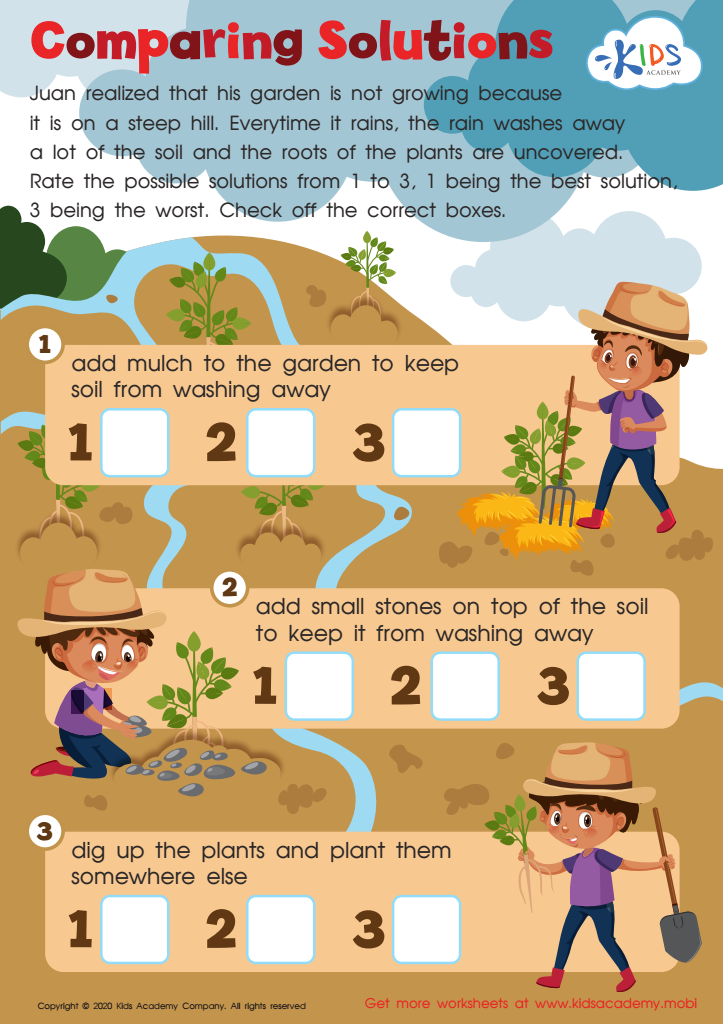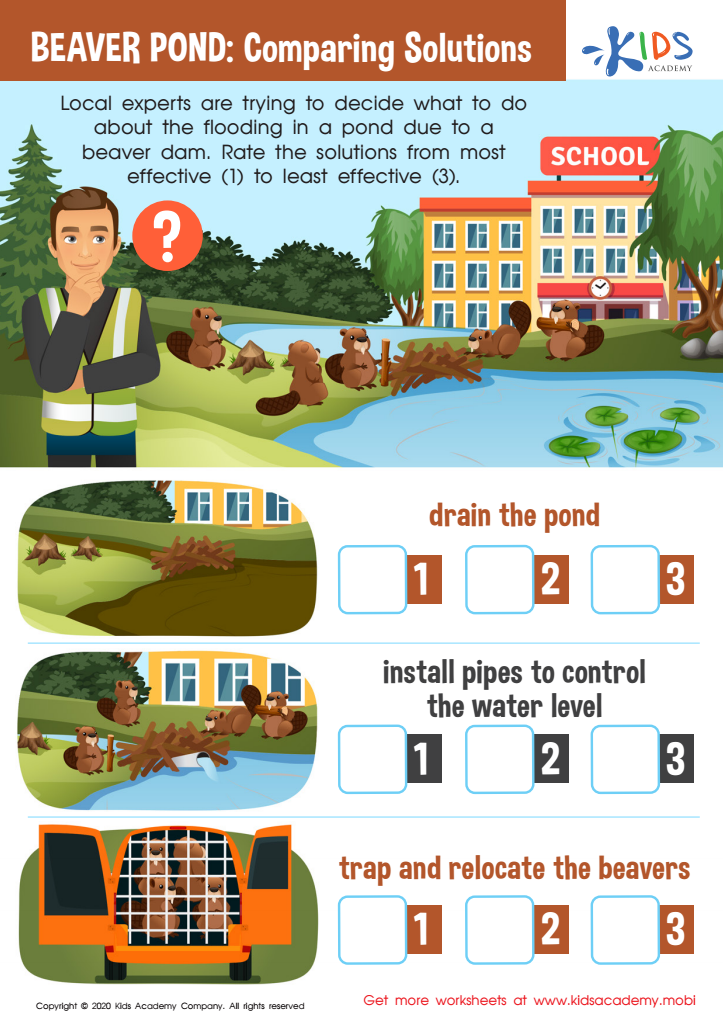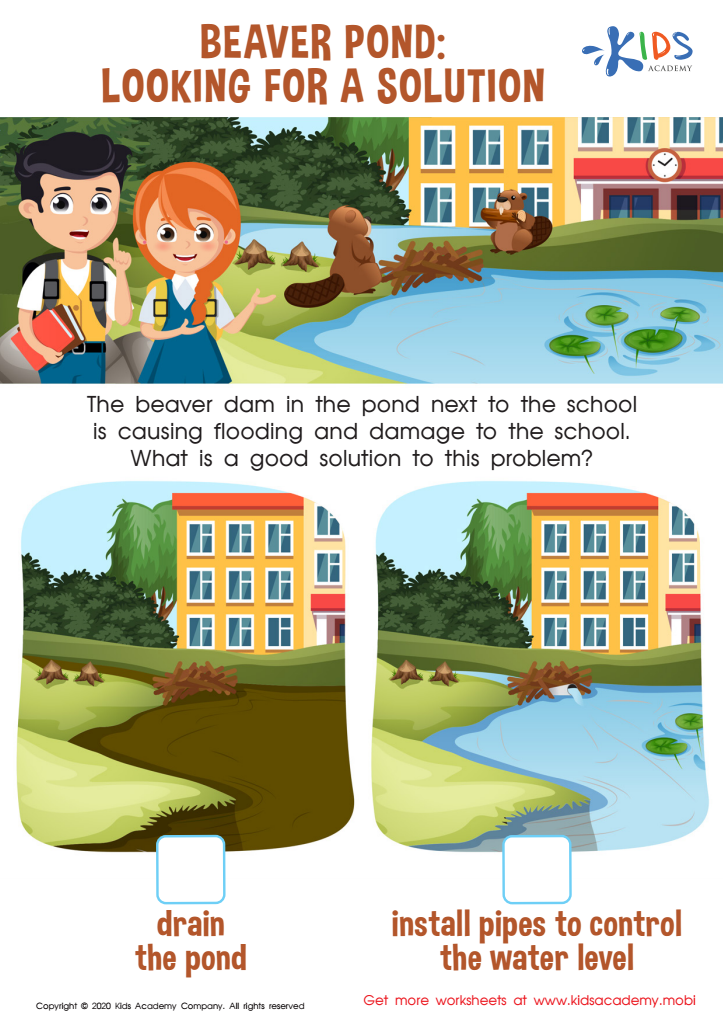Problem-Solving Skills Problem Solving Worksheets for Ages 5-6
3 filtered results
-
From - To
Enhance your child's critical thinking with our Problem-Solving Worksheets designed for ages 5-6. These engaging worksheets nurture important cognitive skills through fun, interactive activities tailored to young learners. Perfect for home or classroom use, our resources help kids develop the ability to identify problems, brainstorm solutions, and think creatively under guidance. As they work through diverse puzzles and scenarios, children will not only strengthen their analytical skills but also gain confidence in their decision-making abilities. Jumpstart your child's problem-solving journey today with activities that make learning exciting and enjoyable! Explore our worksheets and watch your little ones thrive!


Comparing Solutions Worksheet


Beaver Pond: Comparing Solutions Worksheet


Beaver Pond: Looking for a Solution Worksheet
Problem-solving skills are vital for children ages 5-6 as they lay the foundational framework for critical thinking and reasoning. Parents and teachers should care about nurturing these skills because they empower young learners to navigate challenges independently, fostering confidence and resilience. At this age, children are naturally curious, and learning to solve problems helps them to explore their environment, make decisions, and understand cause-effect relationships.
Developing problem-solving skills also enhances creativity in children, encouraging them to think outside the box and come up with multiple solutions to a single issue. This not only aids academic success but also prepares them for future social interactions, allowing them to effectively manage conflicts and collaborate with peers.
Engaging children in problem-solving activities—like puzzles, games, and hands-on projects—can significantly enhance their cognitive abilities. Furthermore, it can stimulate their language skills as they learn to articulate their reasoning and share ideas, fostering communication skills essential for their development.
Lastly, instilling strong problem-solving skills early will benefit children throughout their education and into adulthood, enabling them to approach life's challenges with confidence and adaptability. Therefore, prioritizing problem-solving experiences is essential for fostering a well-rounded, adaptable, and inquisitive learner.
 Assign to My Students
Assign to My Students







.jpg)







